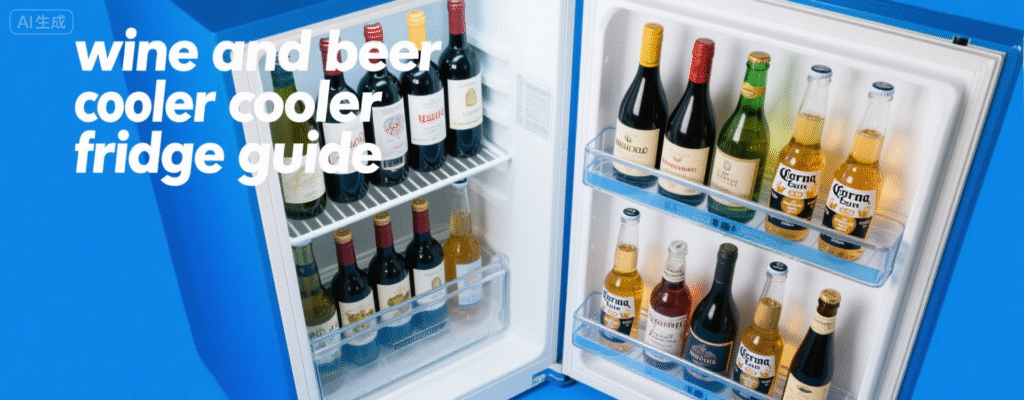For enthusiasts of both wine and craft beer, proper storage is paramount to preserving flavor and aroma. This article explores the specialized world of wine and beer cooler fridge units. We will delve into the distinct environmental needs of each beverage and guide you through the key features to consider when selecting a dual-zone cooler that perfectly caters to your collection.
The Science of Optimal Storage: Why Temperature Matters
Wine and beer are delicate beverages whose chemical compositions are highly sensitive to their environment. The primary enemy is heat; a 2007 study by the University of California, Davis, a world-renowned viticulture institution, demonstrated that storage temperatures above 70°F (21°C) can rapidly accelerate the aging process of wine, leading to cooked flavors and a loss of freshness. Similarly, beer stored at warm temperatures can become “skunked” due to a photochemical reaction that breaks down hop compounds, a process that can occur in just hours under direct light. A dedicated wine and beer cooler provides a stable, cool environment, shielding your beverages from these damaging fluctuations and preserving their intended taste profile.
Choosing Your Perfect Cooler: Features for Discerning Tastes
Not all coolers are created equal. The most critical feature for a connoisseur of both drinks is dual-zone temperature control. This technology creates two independent climate zones within a single unit. You can set one zone to the ideal 45-55°F (7-13°C) range for storing red and white wines, while the other zone maintains a colder 38-45°F (3-7°C) perfect for lagers, ales, and other beers. Beyond temperature, consider:
- Humidity Control: Wine corks require 50-70% humidity to prevent drying out, while beer storage is less sensitive to this. Many high-end wine coolers include humidity regulation.
- UV-Protected Glass: Exposure to ultraviolet light can degrade both wine and beer. Doors with UV filtering are essential for protecting your investment.
- Vibration Reduction: Compressor vibrations can disturb the sediment in wine and potentially affect its maturation. Look for models with low-vibration systems.
Finding a unit that balances these features is key to a versatile wine cooler fridge setup.
In summary, a dedicated cooling unit is not a mere luxury but a practical necessity for preserving the quality of your wine and beer. By understanding the distinct storage requirements of each beverage and selecting a cooler with features like dual-zone temperature control and UV protection, you can ensure every bottle is served at its peak. Investing in the right appliance ultimately protects your collection and enhances your overall tasting experience.
